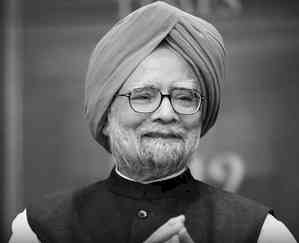Recovery Process After Contoura Surgery: Tips and Insights from an Expert
Contoura Vision, a revolutionary advancement in vision correction surgery, has transformed the lives of millions worldwide, offering unparalleled precision and accuracy in treating refractive errors. However, like any surgical procedure, proper recovery is crucial to achieving optimal results and ensuring long-term eye health. Here are some invaluable tips and insights to navigate the recovery process after Contoura surgery.

by Authored article by Dr. Ch Annapoorna, Sr. Refractive Surgeon, Maxivision Group of Eye Hospitals
Contoura Vision, a revolutionary advancement in vision correction surgery, has transformed the lives of millions worldwide, offering unparalleled precision and accuracy in treating refractive errors. However, like any surgical procedure, proper recovery is crucial to achieving optimal results and ensuring long-term eye health. Here are some invaluable tips and insights to navigate the recovery process after Contoura surgery.
1. Follow Post-operative Instructions Diligently: Your doctor will provide detailed postoperative instructions tailored to your specific needs. It's imperative to adhere to these instructions meticulously. They may include using prescribed eye drops, avoiding strenuous activities, wearing eye protection at night, and attending follow-up appointments. Compliance with these guidelines is vital for a smooth recovery and optimal visual outcomes.
2. Rest and Relaxation: In the initial days following Contoura surgery, prioritize rest and relaxation to facilitate healing. Avoid activities that strain the eyes, such as reading, watching screens for extended periods, or engaging in vigorous exercise. Adequate sleep is essential for the healing process, so aim for at least 7-8 hours of quality sleep each night.
3. Protect Your Eyes: Shield your eyes from potential irritants and contaminants, especially in the first few weeks post-surgery. Wear protective eyewear, such as sunglasses, to safeguard against bright sunlight, dust, wind, and other environmental factors. Avoid rubbing or touching your eyes, as this can increase the risk of infection and interfere with the healing process.
4. Stay Hydrated and Maintain a Healthy Diet: Proper hydration and nutrition are crucial for overall well-being and optimal healing post-surgery. Drink plenty of water to stay hydrated, as it promotes tissue regeneration and aids in flushing out toxins from the body. Additionally, consume a balanced diet rich in vitamins, minerals, and antioxidants to support ocular health and expedite the recovery process.
5. Avoid Smoking and Alcohol: Smoking and excessive alcohol consumption can impair the body's ability to heal effectively and increase the risk of complications after surgery. If you're a smoker, consider quitting or at least abstaining from smoking during the recovery period. Similarly, limit alcohol intake to promote faster healing and minimize the risk of postoperative complications.
6. Be Patient and Manage Expectations: While Contoura surgery offers remarkable results, it's essential to understand that the full benefits may take time to manifest. Vision improvement may vary from person to person, with some individuals experiencing immediate clarity, while others may require several weeks for optimal outcomes. Be patient, and trust the healing process, but also communicate any concerns or unusual symptoms promptly to your ophthalmologist.
7. Engage in Light Activities: As you progress through the recovery process, gradually reintroduce light activities into your daily routine. However, continue to avoid activities that exert excessive strain on the eyes or increase the risk of injury. Consult with your ophthalmologist before resuming activities such as driving or exercising to ensure it's safe to do so.
8. Attend Follow-up Appointments: Regular follow-up appointments with your ophthalmologist are essential for monitoring your progress and addressing any concerns or complications promptly. These appointments allow your surgeon to assess your healing, adjust medications if necessary, and ensure that your vision is progressing as expected. Do not skip or delay follow-up visits, as they are crucial for the success of your Contoura surgery.
In conclusion, navigating the recovery process after Contoura surgery requires patience, diligence, and proactive care. By following these tips and insights, you can optimize your healing, minimize the risk of complications, and enjoy the life-changing benefits of improved vision. Remember, your doctor is your partner in this journey, so don't hesitate to reach out if you have any questions or concerns along the way. With proper care and attention, you'll soon experience the full potential of your Contoura vision.


 City Air News
City Air News 












